Over 30 years of anarchist writing from Ireland listed under hundreds of topics
Magazine
Using the Organiser Model to Beat the Household Tax
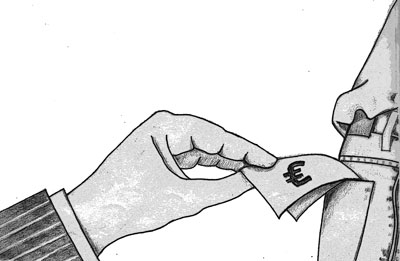 The new year brings a new tax from the Irish government and a new fight in the shape of the campaign against this household tax. Although we have beaten such taxes in the past, past victories are no guarantee of future success. In the light of the current low level of organisation and self-confidence amongst our class, we need to re-assess our methods of organisation if we aim to achieve the levels of mass participation needed for a victory. The argument of this article is that the existing traditional models of building local campaigns are not sufficient to the task and that we need to look to a new model of organising - the organiser model.
The new year brings a new tax from the Irish government and a new fight in the shape of the campaign against this household tax. Although we have beaten such taxes in the past, past victories are no guarantee of future success. In the light of the current low level of organisation and self-confidence amongst our class, we need to re-assess our methods of organisation if we aim to achieve the levels of mass participation needed for a victory. The argument of this article is that the existing traditional models of building local campaigns are not sufficient to the task and that we need to look to a new model of organising - the organiser model.
The Famine, the Land War & 19th Century Resistance- why is it not happening today
 Over the past three years Ireland has witnessed unprecedented austerity. An aspect that has surprised many people has been the limited and at best sporadic resistance to what has been a savage cut in people’s standards of living. Politicians and the media have on many occasions relished the fact that resistance has been largely ineffectual and isolated, while many left wing activists have been left questioning why most people seem willing to take so much pain.
Over the past three years Ireland has witnessed unprecedented austerity. An aspect that has surprised many people has been the limited and at best sporadic resistance to what has been a savage cut in people’s standards of living. Politicians and the media have on many occasions relished the fact that resistance has been largely ineffectual and isolated, while many left wing activists have been left questioning why most people seem willing to take so much pain.
Capitalism & the price of fish
 Recently, a number of the UK’s celebrity TV chefs have launched “Fish Fight”[1], a campaign to address the rapidly increasing crisis of declining fish stocks that threaten the continued supply of fish for the dinner table.
Recently, a number of the UK’s celebrity TV chefs have launched “Fish Fight”[1], a campaign to address the rapidly increasing crisis of declining fish stocks that threaten the continued supply of fish for the dinner table.
The campaign’s aims are worthy and laudable and the sincerity of the celebrity chefs involved is unquestionable. But as much as they understand food and the threat of the collapse of fish stocks, their limited understanding of the economic forces behind capitalism’s inability to sustainably manage limited natural resources guarantees that this well-intentioned campaign is ultimately doomed to failure.
The Crisis and Core & Periphery in the Eurozone - Peripheral Vision
 At the same time that we are witnessing a wave of popular protest in North Africa and the Middle East against aged and corrupt neo-colonial dictatorships, in the heart of Europe we are witnessing something unprecedented and absolutely extraordinary.
At the same time that we are witnessing a wave of popular protest in North Africa and the Middle East against aged and corrupt neo-colonial dictatorships, in the heart of Europe we are witnessing something unprecedented and absolutely extraordinary.
History appears to moving in the ‘wrong direction’ in the so-called peripheral countries of the Eurozone.
Anarchism & Elections - your questions answered
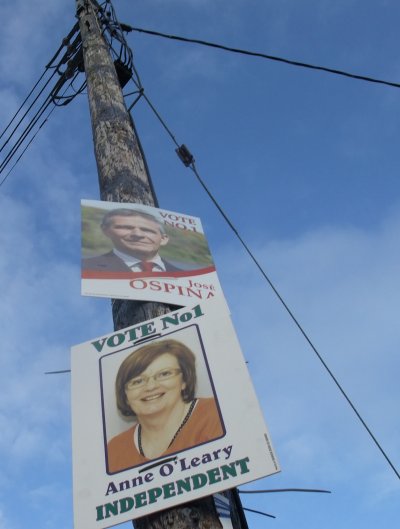 The Workers Solidarity Movement, along with anarchist organisations throughout the world, refuses to take part in parliamentary elections. Is it not downright weird, or even hypocritical, when anarchists claim to want more democracy than anyone else? Is this a rejection of democracy? Alan MacSimoin tries to answer some of the questions that arise again and again.
The Workers Solidarity Movement, along with anarchist organisations throughout the world, refuses to take part in parliamentary elections. Is it not downright weird, or even hypocritical, when anarchists claim to want more democracy than anyone else? Is this a rejection of democracy? Alan MacSimoin tries to answer some of the questions that arise again and again.
The neoliberal origins of the global capitalist crisis
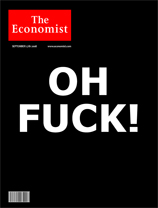 The neoliberal model that global capitalism has depended upon for its growth over the last three decades has collapsed in spectacular fashion. The collapse has been remarkable for the astonishing speed with which it has spread all over the world and into every corner of the global economy.
The neoliberal model that global capitalism has depended upon for its growth over the last three decades has collapsed in spectacular fashion. The collapse has been remarkable for the astonishing speed with which it has spread all over the world and into every corner of the global economy.
Understanding the jargon behind the banking crisis - What are they talking About?
 Financial ‘experts’ and economists seem to speak a different language to the rest of us. They rely on us not understanding what they’re on about. They know that if the gamble which constitutes the supposedly all-powerful ‘markets’ is revealed to us we will see just how crazy a system capitalism actually is.
Financial ‘experts’ and economists seem to speak a different language to the rest of us. They rely on us not understanding what they’re on about. They know that if the gamble which constitutes the supposedly all-powerful ‘markets’ is revealed to us we will see just how crazy a system capitalism actually is.
But the truth is revolutionary and it is important that we look behind their jargon. Here we explain just a few of the most commonly heard terms. [In Italian]
Housing & the property bubble in Ireland - Bubbles, Booms and Busts
 The years from 1995 to 2007 saw record levels of housing construction in Ireland. Construction output went up, land and house prices mushroomed and it seemed as if there was a never-ending bandwagon on which everyone was going to get rich by simply waiting for their pile of bricks to increase in value.
The years from 1995 to 2007 saw record levels of housing construction in Ireland. Construction output went up, land and house prices mushroomed and it seemed as if there was a never-ending bandwagon on which everyone was going to get rich by simply waiting for their pile of bricks to increase in value.
First published in The Irish Anarchist Review 2
A whole new lexicon of terms and vocabulary entered the everyday parlance – terms such as ‘starter home’, ‘property ladder’, ‘first time buyer’; Newspeak phrases such as ‘affordable housing’ were bandied about. Houses and housing estates were advertised for sale by estate agents and property developers with colourful banner headlines and slogans such as ‘live the dream’, ‘live the lifestyle’ – it was almost explicitly stated that even the dreary Irish weather could be by-passed by buying an apartment or house in the latest development. It seemed as if the dream would go on forever. But in mid 2007, disaster struck. With the onset of the world- wide recession, Ireland’s very own property bubble burst with a huge bang and left only destruction behind it. The dream turned to a nightmare for many people and the vocabulary was now dominated by terms such as ‘negative equity’, ‘ghost estates’ and ‘price collapse’.
Capitalist crisis and union resistance in Ireland
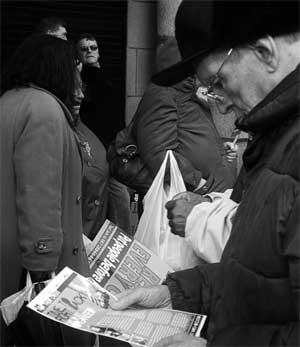 Late 2008 saw the Irish capitalist class wage a major ideological struggle against the Irish working class. They called for workers to bear the brunt of the capitalist crisis. Print media, TV and radio carried segment after segment where well-paid commentators argued that workers, in particular public sector workers, were earning too much, had overly generous pensions and that the public had unrealistic expectations of public services.
Late 2008 saw the Irish capitalist class wage a major ideological struggle against the Irish working class. They called for workers to bear the brunt of the capitalist crisis. Print media, TV and radio carried segment after segment where well-paid commentators argued that workers, in particular public sector workers, were earning too much, had overly generous pensions and that the public had unrealistic expectations of public services.
Interview with Larry Wheelock: “No Justice, Just Us”
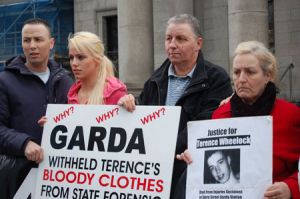
In what will be widely seen as a part of an ongoing cover up the the Gardai Ombudsman has released a report which claims Terence Wheelock was not mistreated in Store street Gardai station (where he died). Here we reproduce a long interview with his brother Larry who, along with the rest of the family, has spent years campaigning for justice for Terence.
---
The family and friends of Terence Wheelock are still waiting for a credible and complete account of what happened in the station from the Garda [1] . In 2005 they launched a campaign demanding an independent inquiry into the case.

